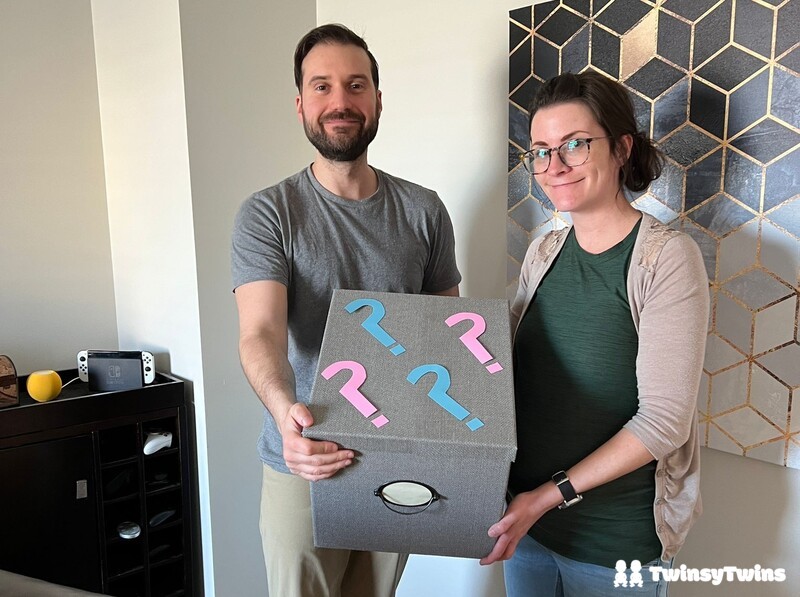
If you've welcomed a set of twins into your family, you probably, to this day, can't believe your luck and still get the random thought, "I can't believe there are two."
And if your twins were your first babies and you're through the newborn stage, you may be thinking about trying to conceive again.
And, as a parent of twins already, those thoughts are probably immediately followed by another question, whether it's asked by you, your family, or anyone you share your family planning hopes with: What if it turns out to be twins again?
The chance of multiples

In Canada, about 1 in 31 births results in twins or higher-order multiples.
This statistic is almost the same in the United States, with about 32.1 out of every 1,000 births resulting in twins.
Triplets or higher-order multiples occur in approximately 78.9 out of every 100,000 live births.
Different factors can increase the chances of conceiving multiple babies, like:
- Genetics Having the hyperovulation gene, where your body releases two eggs—or more—during ovulation.
- Getting pregnant at an older age Where "old" is considered in your mid-30s or higher…I know, the term "geriatric pregnancy" is shocking the first time you hear it.
- Having a higher body mass index (BMI) You may be more likely to conceive multiple babies if your BMI is 30 or higher.
- Undergoing fertility treatments In-vitro fertilization or intrauterine insemination can result in multiple births from a single pregnancy.
Multiple sets of multiples

Two sets of twins (or triplets, or more?). The possibility is there. There are people who have welcomed three sets of twins or more into their family.
Is the idea terrifying or thrilling?
Just how high are your chances of conceiving twins? It depends on a few factors. One of the most prominent factors is whether your first set of twins was identical (or monozygotic) or fraternal (or dizygotic).
Dizygotic twins are more common, with about 70 percent of all twins being fraternal. They result when two separate eggs are fertilized by two different sperm.
If your first set of twins was fraternal, then your chances of having another set of fraternal twins are 1 in 12. As noted above, the mother's genetics, age, BMI, and whether they undergo fertility treatments can all contribute to a higher chance of conceiving dizygotic twins.
Identical twins, on the other hand, occur by chance, when a single fertilized egg splits spontaneously and results in a monozygotic pregnancy. For this reason, the chance of having a second set of identical twins is random and much lower, closer to about 1 in 250.
According to the International Council of Multiple Birth Organisations, "without the help of fertility treatments, and according to a mathematical rule that doctors use called Hellin's law, about one in 90 births is twins, one in 8,100 births is triplets and one in 729,000 births is quadruplets."
So many multiples, so much love

If you decide to try to conceive after welcoming a set of twins into your family, then you also welcome the possibility that your hope for one more might turn into two more.
So many multiples can mean so much love. You just might not have enough arms for all of the group hugs that'll be coming your way.
But if you're like me, you'll tell your twins there's always room for both of them in your lap—and, I know, as they keep growing, it's less and less likely, but there's always room for everbody in this mama's heart.
Have you had more than one set of multiples? How many have you had? Let us know in the Comments section below or connect with us on Instagram to share your thoughts!
Read more

Like Saving? Shop 99 Early Black Friday Deals on Baby Must-Haves in Canada
Kids are cute. They're also expensive. And when you've got two who are growing up side-by-side and hand-in-hand, it's incredibly cute...and exponentially more expensive. Making double-puchases again and again can make you feel like you're breaking the bank, so if you can find a deal on something you need, it can make you feel like the lottery. As we get closer to the holidays and the...

Fall Savings Are Here: The Best Prime Deals for Parents in Canada
Being a parent is expensive. Being a parent of twins or higher-order multiples is exponentially more expensive. While, most of the time, you have to grin and bear it while you break the bank on the next double-purchase that just can't wait, this isn't one of those times. Amazon Prime Day deals are back, and you just may fall over when you see some of these savings. Amazon Prime...

Trick or Treating with Twins: 50 Memorable Halloween Costumes for Multiples
It's still more than a month-and-a-half away, but as someone who loves Halloween and having fun dressing up, I feel it's never too early to start planning costumes for you and your family. Tracking down all of the right pieces to create the right look for whatever you're dressing up as can take a bit of time, and when you're trying to find costumes for your younger twins, it can be...

This Device Helps You Bond with Your Twin Babies Before They’re Born
The early stages of pregnancy are exciting. They can also be scary and anxiety-inducing. And if you had a long, hard road with trying to conceive, the early weeks of being pregnant can leave you feeling extra concerned or worried about how things are coming along. You hope everything is going okay on the inside, but you don't really know until you have your first appointment with...